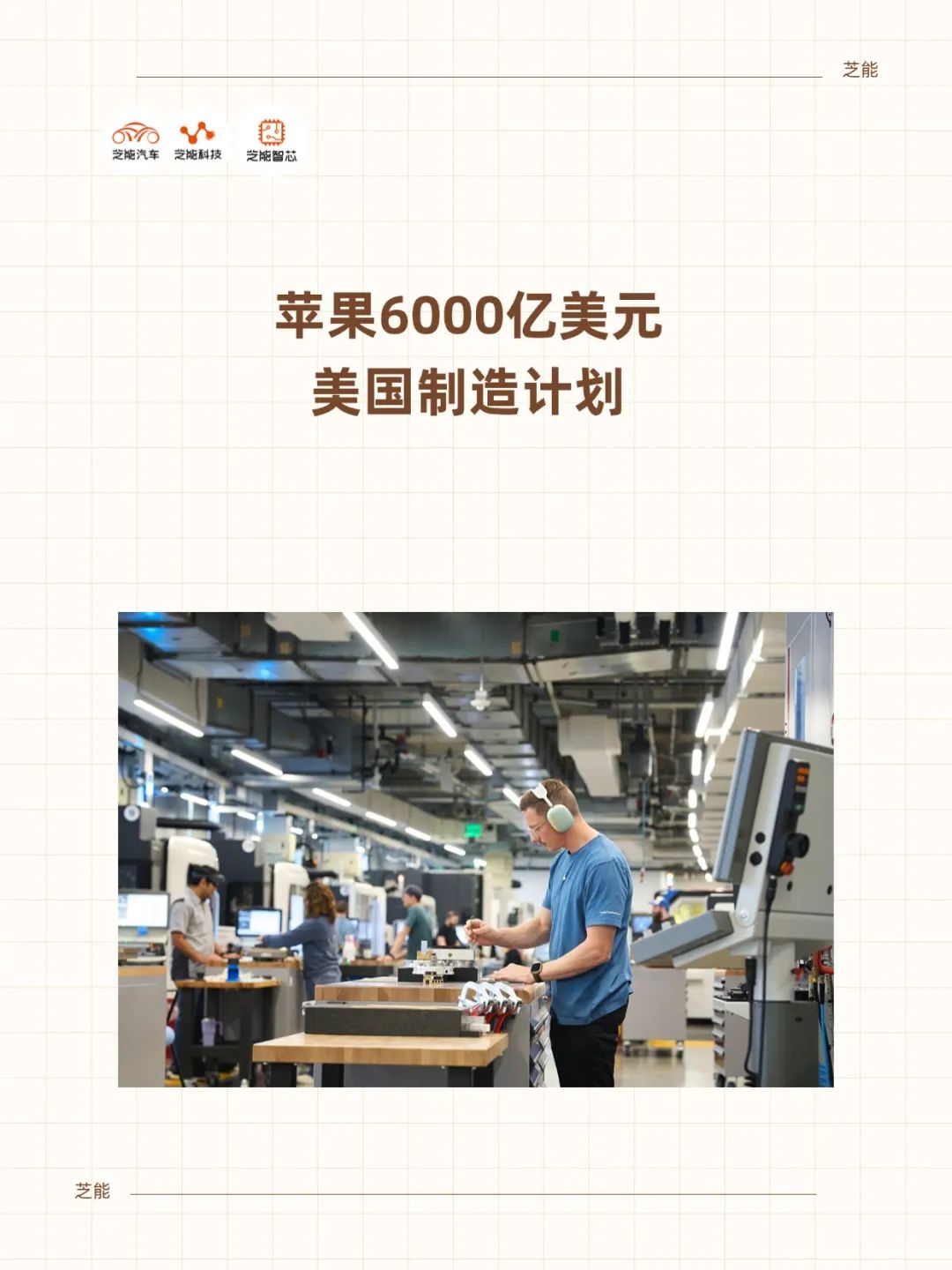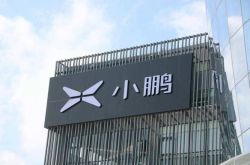Apple Injects $600 Billion into 'Made in USA' Initiative
![]() 08/11 2025
08/11 2025
![]() 630
630
Produced by Zhineng Zhixin
Apple's investment footprint in the United States is expanding at an unprecedented pace. The $600 billion 'Made in USA' initiative goes beyond mere relocation of production capacity; it represents a comprehensive restructuring of the industrial chain, encompassing materials to computing power.
Apple has forged alliances with numerous semiconductor, material, packaging, and equipment manufacturers to establish a locally integrated end-to-end closed loop. This loop includes silicon wafers, semiconductor wafers, packaging and testing, wireless chips, rare earth magnets, and AI servers.

This strategic move serves as a defense against the volatility of global supply chains. By integrating key players such as TSMC, Texas Instruments, Amkor, and Broadcom, Apple has significantly shortened the geographic radius of chip production and packaging to within hundreds of kilometers. Investments in manufacturing equipment, optoelectronic devices, and rare earth recycling also pave the way for future process upgrades and material security.
More significantly, with the establishment of an AI server factory in Houston and the expansion of data centers across the United States, Apple is laying the groundwork for long-term infrastructure supporting AI computing and private cloud services. This profound layout underscores Apple's focus on technological controllability, mastery of computing power, and market dominance.
Part 1
Technology Building of an End-to-End Silicon Supply Chain
At the heart of Apple's current investments lies the establishment of a comprehensive supply chain centered in the United States. This supply chain spans silicon material production, wafer fabrication, packaging and testing, and chip integration. Its technological path is well-defined, encompassing every crucial link in semiconductor production.
● In silicon material and wafer production, Apple has partnered with GlobalWafers America to mass-produce advanced 300mm silicon wafers in the United States for the first time. These wafers will be supplied to TSMC's Arizona factory, Texas Instruments' Utah and Sherman, Texas factories, for the manufacturing of core devices like iPhones and iPads. The high-purity silicon wafers required for wafer production are sourced from Hemlock Semiconductor, a subsidiary of Corning, ensuring a localized closed loop for material supply.
● In wafer fabrication, TSMC's Arizona plant will employ one of the most advanced process technologies in the United States (speculated to be N4 or more advanced nodes) to produce tens of millions of high-performance chips for Apple. Texas Instruments' 300mm wafer plant, specializing in power management and analog chip production, uses semiconductor equipment manufactured by Applied Materials' Austin plant and wafers from GlobalWafers, enhancing local manufacturing self-sufficiency.
● In advanced packaging and testing, Apple has invested in Amkor's packaging and testing factory in Arizona, positioning itself as the plant's first and largest customer. This factory will be responsible for packaging and testing Apple chips produced by TSMC in the same state, forming a geographically concentrated supply model with minimal transportation times. The packaging technology may involve advanced processes such as 2.5D/3D packaging and Fan-Out, which enhance chip interconnect density and thermal performance.
Apple has collaborated with Broadcom and GlobalFoundries to develop cellular semiconductor components. GlobalFoundries' Malta, New York plant specializes in wireless communication and advanced power management technologies. These devices are crucial for boosting 5G performance, extending battery life, and supporting more AI inference and edge computing tasks in the future.
Through full-chain collaboration in silicon raw materials, wafer fabrication, packaging and testing, and communication components, Apple has achieved a localized end-to-end supply chain. This reduces dependence on overseas production capacity while ensuring technological controllability and stability in advanced processing, packaging technology, power management, and wireless communication.
Part 2
Advanced Manufacturing and AI Infrastructure Development
Apple's 'Made in USA' initiative extends beyond terminal chip production to the infrastructure level of advanced manufacturing equipment, AI servers, and data centers.
● In manufacturing equipment, Applied Materials will provide key semiconductor manufacturing equipment to partners like Texas Instruments and invest $200 million to construct a factory in Arizona. This localized equipment manufacturing capability will expedite equipment delivery cycles, mitigate cross-border transportation risks, and enhance process debugging efficiency.
● In optoelectronic devices, Apple has signed a multi-year agreement with Coherent to produce VCSEL lasers in Sherman, Texas. These lasers provide 3D sensing functions such as Face ID for iPhones and iPads. The miniaturization and high-power density of VCSELs also hold potential for supporting AR/VR and next-generation sensing applications.
● In rare earth and magnetic materials, Apple procures US-made rare earth magnets from MP Materials and constructs an advanced rare earth recycling production line in Mountain Pass, California. This vertical integration not only ensures the supply of high-performance magnetic devices but also promotes the implementation of rare earth recycling technology.
● In AI servers and data centers, Apple is constructing a 250,000-square-foot server manufacturing plant in Houston, with mass production planned for 2026. These servers will be equipped with Apple's proprietary chips, offering high security and AI computing optimization capabilities, and will serve the private cloud computing architecture of Apple Intelligence. This architecture distributes AI inference and training computing between the cloud and endpoints, improving response speed and enhancing privacy protection.
Apple is also expanding data centers in Maiden, North Carolina, Iowa, Nevada, and Oregon, all powered by 100% renewable energy. These data centers not only support services like iCloud, Apple Music, and the App Store but also provide computing power for AI model training and distributed inference.
Apple's investments in manufacturing equipment, optoelectronic devices, rare earth magnets, AI servers, and green data centers form the technological and computing power foundation supporting the end-to-end supply chain. Its AI server and data center layout suggest that Apple aims to create a closed loop in the field of AI and cloud computing, achieving complete control from hardware to computing power.
Summary
Apple's 'Made in USA' initiative represents a migration of production lines, creating a virtually independent closed loop for silicon materials, manufacturing processes, packaging and testing, key components, and computing facilities. This layout provides Apple with dual layers of protection: supply chain resilience and security, as well as technological dominance spanning from hardware to the cloud.
Amidst the accelerating global competition in semiconductors and AI, this end-to-end integration capability not only strengthens the United States' position in key industries but also positions Apple as a leader in the AI-driven future ecosystem.





